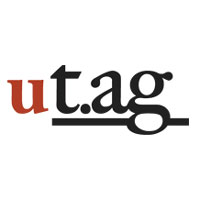 With over 100 startups launching over the next few days between TechCrunch50 and DEMO, and most of your favorite tech blogs inundated with reviews of those companies, we thought it would be fun to highlight a new startup that isn’t presenting at either. Last week, a couple of dozen developers got together in Sydney, Australia for what might have been the country’s first startup weekend (though it doesn’t seem to have been associated with StartupWeekend).
With over 100 startups launching over the next few days between TechCrunch50 and DEMO, and most of your favorite tech blogs inundated with reviews of those companies, we thought it would be fun to highlight a new startup that isn’t presenting at either. Last week, a couple of dozen developers got together in Sydney, Australia for what might have been the country’s first startup weekend (though it doesn’t seem to have been associated with StartupWeekend).
In small teams, the group of entrepreneurs developed three startups over the 48-hour get together. Those included a traffic map of Sydney using Google Maps and a visual representation of links shared on Twitter. But it is the third startup that reportedly was voted best of the weekend. uTag is a URL shortener similar to services like Snurl or TinyURL, with a twist: it adds advertisements in a top frame to all outgoing links allowing webmasters to monetize traffic as it leaves their site without resorting to popunders.
The founders say that their service is a way to reward top social media users who spend time finding quality content to share on sites like Twitter and del.icio.us. “On micro-blogging site Twitter, there are already 2 Billion abbreviated links clicked on per month. In addition to this there are over 120 Million blogs on the Internet that finally have a way to be rewarded for driving traffic across sites,” said co-founder Kim Heras.
The service works basically like any other URL shortening service; you enter a URL and generate a uTag link. However, there is one additional step: enter your PayPal id. The site also offers an API that can automatically create uTag versions of all links on a web site. The result is a link like the two samples I generated below:
http://ut.ag/00k7C which points to sitepoint.com/forums
http://ut.ag/00k7D which points to yahoo.com
After clicking, the user is sent to a site with an About.com-style top frame that includes a Google Adsense block (though presumably the site’s founders would prefer to sell higher quality ads against linked content in the future). The Adsense ads don’t really target well — I was getting ads for apartments in Salt Lake City, Utah and Atlanta, Georgia on a link to the SitePoint Forums, for example — and they seem to be served by Adsense in Germany for some reason. Even so, uTag says that so far it is seeing an average CPM of $6, which is well ahead of what they were expecting.
uTag estimates that there is a market of 3 billion shortened URLs created each month, and at a $5 CPM, they estimate potential revenues of up to $15 million per month. The site shares 70% with linkers, and plans to split the remaining third of the click revenue 50/50 with any Twitter clients that would want to partner with them. The company is apparently seeking $200,000 and is pitching investors right now.
Some Issues
uTag is not without some possible pitfalls. While there is certainly potential in the idea, there are some issues that might hold it back. The first is that the market for URL shorteners is already very crowded, and there’s not much to separate the competitors from one another. Market leaders TinyURL, Is.gd, and Snurl already have significant visibility, sending billions of clicks per month. And newcomer Bit.ly got a ton of positive press a couple of months ago. It wouldn’t take much for any of them to add framed ad monetization to their list of services. For uTag to succeed, they’re definitely going to have to sign some partnerships with Twitter/Friendfeed/instant messenger clients.
Second, uTag doesn’t provide anything right now in the way of stats on your links. If I’m going to put ads on my outgoing links, I definitely want to be able to track how much I’m making and how much uTag owes me.
Finally, framed ads aren’t popular. About.com has long caught flak for framing third-party content with their own ads (an example). Detractors of this practice see it as an unethical way to profit from other people’s hard work, and putting ads on outgoing links might also not sit well with social media sites like Twitter and Delicious.
 Josh Catone
Josh CatoneBefore joining Jilt, Josh Catone was the Executive Director of Editorial Projects at Mashable, the Lead Writer at ReadWriteWeb, Lead Blogger at SitePoint, and the Community Evangelist at DandyID. On the side, Josh enjoys managing his blog The Fluffington Post.
